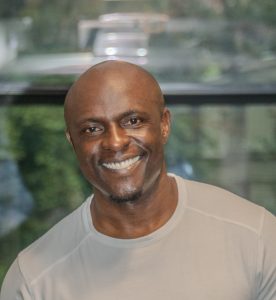
June is the application phase for my hitters—part of our May through July “Show” season. This is when players take everything they’ve been developing and apply it in live competition. But one of the biggest challenges we face during this time—especially for travel baseball families—is managing strength training and nutrition.
The heavy game schedules often leave little time for athletes to properly build their bodies, and that’s where many parents need to step up and take control of their children’s long-term development.
Recently, Moussa Gordon, Sr., reached out to me with a series of excellent questions that many parents have. Rather than give quick answers, I reached out to my personal strength and nutrition coach, Brandon Butler, to provide expert insight.
Brandon has played a huge role in my own personal development. When I started with him on Feb. 1, 2024, I was trying to avoid full knee replacement surgery. Through his coaching and guidance, I’ve not only gotten stronger, but have since run more than eight road races, including a half marathon and I’m scheduled to run eight races this year as part of my training for my first full marathon on March 1, 2026.
Love, prayer and discipline are vital—but expert coaching is equally important. Talent may get you noticed by scouts, but strength and nutrition will keep you on the field performing at your highest level. Without both, scouts will pass.
That’s why I’ve asked Brandon to address the following questions submitted by Moussa Gordon, Sr.:
Nutrition & Supplements
1. For rising 9th graders: Supplements vs. natural diet?
As youth athletes transition into high school, the demands on their bodies increase—both physically and mentally. Whether preparing for showcases or simply striving to reach the next level, rising 9th graders need a solid foundation in nutrition, supplementation and training principles.
Below is a practical guide that answers common questions and provides clear direction for young athletes and their families:
What Should 9th Graders Prioritize?
At this stage in athletic development, nutrition is performance. What young athletes put in their bodies can significantly impact energy levels, recovery and overall output.
Food is fuel. A balanced, whole-food-based diet should always be the foundation. Eating the right foods at the right time is critical for sustained energy and proper growth.
Around 9th grade is when athletes begin to take personal responsibility for their nutrition. Learning what to eat, how much to eat and when to eat are essential skills for athletic performance. Supplements can help, but they should be used strategically and simply. The goal of any supplement should be to support growth, recovery and performance—not to replace a healthy diet.
Recommended basic supplements include:
- Protein (whey or plant-based) – for muscle repair and development
- Creatine Monohydrate – supports power and strength (ideal after puberty begins)
- Magnesium – aids in muscle relaxation and cramp prevention
- Potassium – helps with hydration and muscle recovery
- Vitamin D3 – supports bone health, immune function and muscular performance
While many of these nutrients can be found in whole foods, supplementation can ensure that young athletes meet their daily needs, especially during intense training cycles.
2. At what age are supplements safe?
Supplement safety depends on the type:
Safe for younger teens (pre- and early-puberty): Vitamin D3, magnesium, potassium (under adult supervision)
Recommended after puberty begins: Protein powders and creatine (ensure proper dosage and hydration)
Always consult with a pediatrician, performance coach or registered dietitian before introducing new supplements.
3. Are meal plans essential for weight/muscle gain?
Absolutely. Meal plans provide structure and consistency—but more importantly, they help young athletes build habits around when, what, and how to eat.
Before handing a 9th grader a rigid meal plan, it’s more impactful to teach:
- What are quality protein sources?
- Which fruits and vegetables are in season?
- What foods energize the body, and which ones deplete it?
Family involvement is also essential. Nutrition changes in a household require commitment and planning. Whether it’s a full shift to healthier eating or creating space for the athlete to meet their unique needs, success is a team effort.
Training & Preparation: Showcase Readiness
1. What workout best prepares you for a showcase?
(60-Yard Dash • 30-Yard Dash • Vertical Jump • Frog Jumps)
Key training areas:
- Mobility & Flexibility: To unlock full range of motion and reduce injury risk
- General Strength & Power: Foundational strength enhances speed and jump mechanics
- Plyometrics: Improves quickness, body control, and explosiveness
- Olympic Lifts (Intro-level): Barbell cleans and snatches build full-body power
A periodized strength program—meaning it follows planned phases of development—is ideal for gradually increasing strength, speed, and agility.
2. Are rotational workouts essential for baseball players?
Yes. Baseball is a rotational sport. Power comes from the ability to efficiently transfer force from the hips to the shoulders. Exercises that improve hip rotation, thoracic mobility, and core control are essential for a powerful swing and strong throws.
3. Best workout to strengthen hips?
- Hip CARs (Controlled Articular Rotations): Promote healthy joint movement
- 90/90 Hip Rotations: Improve internal/external rotation
- Hang Cleans & Bulgarian Split Squats (Partial Range): Build explosive power and unilateral strength
4. Plyometrics — having heard this name a lot, is this a new workout, or has it been around for a while?
Plyometrics may sound trendy, but they’ve been around since the 1960s. Originally developed by Soviet sports scientists, plyometrics use quick, explosive movements to enhance:
- Speed
- Power
- Skill execution
- Muscle elasticity
They are a staple in performance training and are incredibly effective when used correctly and progressively.
Final Thoughts: Long-Term Development Over Quick Results
Success for young athletes isn’t just about short-term gains—it’s about building strong, sustainable habits that will support them through high school and beyond. Whether it’s understanding nutrition, using supplements wisely, or training smart, rising 9th graders are a key window to develop the tools for long-term performance and health.
Learn more about Sports Performance Coach Brandon Butler on Instagram at @trustfitness_pt.
Remember: Intelligence tops being smart.
For more information, visit www.diamonddirectors.com today.
If you found this inspiring and thought-provoking, or if you have any questions, comments or concerns, add me on Discord and let’s go deeper.
C.J. Stewart has built a reputation as one of the leading professional hitting instructors in the country. He is a former professional baseball player in the Chicago Cubs organization and has also served as an associate scout for the Cincinnati Reds. As founder and CEO of Diamond Directors Player Development, C.J. has more than 22 years of player development experience and has built an impressive list of clients, including some of the top young prospects in baseball today. If your desire is to change your game for the better, C.J. Stewart has a proven system of development and a track record of success that can work for you.

Leave a Reply